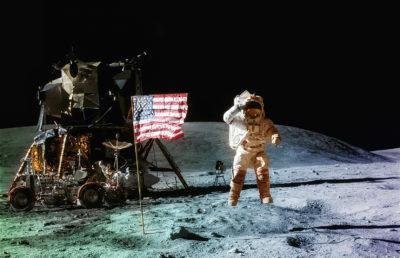The recent success of DeepMind’s computer chess program illustrates the power of AI to cause major disruptions in every industry, including asset management.
In early December, a group of researchers from DeepMind Technologies, a London-based artificial intelligence enterprise acquired by Google in 2014, shocked the chess world when they published a paper detailing how their company’s AlphaZero program had handily defeated the leading computer chess program after teaching itself to play the game in just four hours. Unlike typical programs, which analyze tens of thousands of games by grandmasters and use an opening book and endgame table to arrive at the optimal move, AlphaZero was armed with only the basic rules of chess. Beginning from random play, its tabula rasa algorithm learned by playing against itself, game after game. “It’s a remarkable achievement,” former World Chess champion Garry Kasparov told Chess.com. “We have always assumed that chess required too much empirical knowledge for a machine to play so well from scratch, with no human knowledge added at all.”
AlphaZero won 28 out of 100 games against its computer opponent, Stockfish, without losing even once (the other 72 games were draws). Perhaps most impressive was the efficiency of the AlphaZero program: It evaluated 80,000 positions per second, compared with 70 million for Stockfish. “AlphaZero compensates for the lower number of evaluations by using its deep neural network to focus much more selectively on the most promising variations — arguably a more ‘human-like’ approach to search,” wrote DeepMind’s researchers.
DeepMind’s recent success has implications that go well beyond the world of chess. Artificial intelligence will cause major disruptions in every industry as computers increasingly take on tasks that in the past have required human intelligence. Using neural networks, deep learning algorithms and other machine learning methods, computers free up people from monotonous tasks so they can work on more complex and valuable projects. Consulting firm Deloitte is calling for an exponential increase in commercial AI-based applications over the next three to five years. “We have reached the tipping point where adoption of machine learning in the enterprise is poised to accelerate, and will drive improved business operations, better decision making and provide enhanced or entirely new products and services,” says Deloitte vice chairman Paul Sallomi.
More Profound than Electricity
Artificial intelligence’s potential for improving productivity has not been lost on heads of state and corporate chiefs. This past January, U.K. Prime Minister Theresa May committed to develop her country’s artificial intelligence technology, which the government believes could add £630 billion ($895 billion) to its economy by 2035. Google CEO Sundar Pichai recently remarked that artificial intelligence is “probably the most important thing humanity has ever worked on,” calling it “more profound than electricity or fire.”
The artificial intelligence revolution is being fueled by the combination of faster and cheaper hardware, the explosion in cloud computing services and the massive growth in unstructured data. Neural networks like DeepMind’s AlphaZero feed on data; the more data they have, the more problems they can solve. And there’s no shortage of data. IBM estimates that 2.5 quintillion bytes of data are created every day, on average, as people upload 300 million photos to Facebook, perform more than 3.5 billion Google searches, watch 5 billion videos on YouTube and take 10 million Uber rides.
The exponential growth of data and the quantification of that data are arguably the two most important long-term trends facing investors today — and they are driving innovations in technology for asset management firms. At WorldQuant, we consider applying AI techniques at different stages of our investment process, from translating data into predictive trading signals, which we call alphas, to combining those signals into strategies and portfolios. While our use of AI has historically involved simple machine learning, we have more recently begun to explore other, more sophisticated AI techniques. That’s one reason we were so excited to see the news about AlphaZero: The program was able to reach a superhuman level of play in just four hours for a nearly 1,500-year-old game that has more possible outcomes than the number of atoms in the observable universe.
“The ability of a machine to replicate and surpass centuries of human knowledge in complex closed systems is a world-changing tool,” said Kasparov after AlphaZero’s recent victory. He should know: In 1997 the then–world champion lost a six-game match to IBM’s Deep Blue supercomputer, starting the AI revolution.
For the asset management industry, artificial intelligence may be a game changer. Although financial markets are dominated by humans today, human behavior doesn’t change. We learn, driving progress and innovation, but we don’t necessarily evolve rapidly. Unlike humans, AI has the potential to quickly evolve. Each generation of AI can be thought of as a new and more advanced species, and each new and better species of AI holds the potential to shape how markets are approached and analyzed.
Igor Tulchinsky is Founder, Chairman and CEO of WorldQuant.




